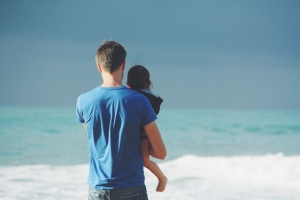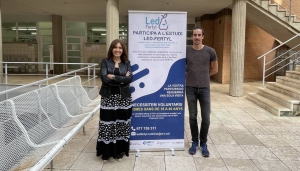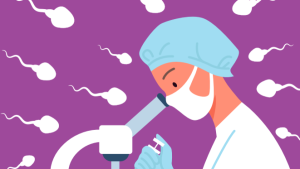News
In this section you will find the latest news related to the project:
Interview with Dr. Albert Salas-Huetos
In recent years, male infertility has been increasing, but the cause is unknown. For this reason, the researchers of the Nutrition Unit of the Universitat Rovira i Virgili want to discover the origin of this problem and ask for the collaboration of citizens.
In recent years, there has been a lot of talk about the impact of environmental pollution, around Camp de Tarragona but also worldwide, may have on people’s health. Indeed, increased exposure to environmental pollutants may directly reduce male fertility and increase male reproductive abnormalities. Now, research being led by Rovira i Virgili University will begin studies in Men designed to provide robust answers to what were previously only unsubstantiated rumours. This is the objective of LedFertyl or ‘Lifestyle and Environmental Determinants associated with the seminogram and other parameters related to male FERTilitY’.
25% of couples have problems having children.
According to the World Health Organization (WHO), 25% of couples (that is, one-in-four) have problems having children. In fact, infertility affects approximately 15% of the world’s population, with male factor infertility being responsible for almost 50% of these cases. Over the last 40 years, male infertility problems have been increasing, but the causes are unknown. “Sperm quality, especially in developed and industrialized countries, has decreased by 40% since 1970,” says Harvard researcher and study collaborator Albert Salas, adding that this situation in practice “means that couples have more difficulties when it comes to having children”.
LedFertyl, an international study of Reusenc origin, involving researchers from the Nutrition Unit of the Universitat Rovira i Virgili want to put a stop to this decline in male fertility. LedFertyl is an international study that begins in Reus, but is being replicated in Girona, Mallorca, the United States, Poland and the UK. A total of 600 male volunteers are being asked to participate with the aim of demonstrating that environmental pollution and lifestyle directly affect semen quality. Thanks to this study, and according to the researcher of the Human Nutrition Unit of the URV, María Fernández, “it will be possible to improve the situation in which many couples find themselves when it comes to having children” and that nowadays “they don’t know what is happening to them”.
To meet this grand challenge for the age, citizen collaboration is requested.
The researchers would like Men between 18 and 40 years of age who want to help progress reproductive science, to come forward. They are only required to fill out a form and make a single medical visit.
For more information you can call 977 75 93 11 or send an e-mail to ledfertyl.nutricio@urv.cat
2023
Font: Diari Digital URV- 21/11/2023
STUDY DETECTS ORGANIC CONTAMINANTS IN THE SPERM OF HEALTHY MEN
https://diaridigital.urv.cat/contaminants-organics-en-lesperma/?tv=sp
An innovative methodology developed by IDAEA-CSIC and the Universitat Rovira i Virgili analyzes more than 2,000 chemical compounds potentially harmful to male fertility.
Bibliographic reference:
Sánchez-Resino E, Marquès M, Gutiérrez-Martín D, Restrepo-Montes E, Martínez MÁ, Salas-Huetos A, Babio N, Salas-Salvadó J, Gil-Solsona R, Gago-Ferrero P. Exploring the Occurrence of Organic Contaminants in Human Semen through an Innovative LC-HRMS-Based Methodology Suitable for Target and Nontarget Analysis. Environ Sci Technol. 2023 Nov 7. doi: 10.1021/acs.est.3c04347. Epub ahead of print. PMID:37934628.https://pubs.acs.org/doi/full/10.1021/acs.est.3c04347
https://pubmed.ncbi.nlm.nih.gov/37934628/
2022
Font: Diari Més Digital– 11/10/2022 (Cristina Serret)
We are looking for volunteers between 18 and 40 years old to conduct a study on sperm quality
The URV and the Pere Virgili Foundation want to analyze the influence of factors such as environment and lifestyle on fertility.
https://www.diarimes.com/es/noticias/tarragona/2022/10/11/ambient_estil_vida_afecten_fertilitat_128720_1091.html
Font: Diari de Tarragona – 01/03/2022 (Sílvia Fornós)
Male infertility under the microscope
The URV/IISPV is looking for volunteers to analyze how lifestyle affects sperm quality.
Environment and lifestyle, environmental pollution, tobacco and/or alcohol consumption, lack of physical activity, stress and unhealthy diets are all parameters that a research group from the Human Nutrition Unit and the Toxicology and Environmental Health Laboratory (TecnATox) of the Universitat Rovira i Virgili (URV) and the Institut d’Investigació Sanitària Pere Virgili (IISPV) will put under the microscope to jointly analyze how they affect sperm quality.
https://www.diaridetarragona.com/sociedad/la-infertilidad-masculina-bajo-el-microscopio-20220301-0058-NJDT202203010058
2021
The Research Group of the Rovira i Virgili University (URV), with the collaboration of the Department of Health and Citizenship, has set up a marquee in the Plaça del Mercadal to recruit volunteers for two research studies. The tents will be set up on October 15, 21 and 22, from 4 to 7 pm.
Volunteers are needed for two studies. On the one hand, the LedFertyl studio is looking for men from 18 to 40 years old. It is an international study that links lifestyle with male infertility.
https://reusdigital.cat/noticies/reus/el-grup-dinvestigacio-de-la-urv-busca-voluntaris-al-mercadal
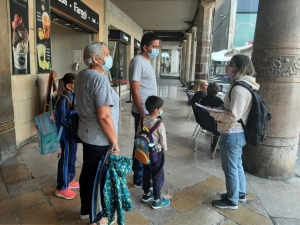
The Research Group of the Universitat Rovira i Virgili, with the collaboration of the Department of Health and Citizenship, has installed a tent in the square of the Mercadal to get volunteers for two research studies. The tents will be set up on October 14, 15, 21 and 22, from 16:00h to 19:00h.
Volunteers are needed for two studies. On the one hand, the LedFertyl study, for which they are looking for men from 18 to 40 years old https://www.youtube.com/watch?v=VRwrAtC0ZoE. It is an international study that links lifestyle with male infertility.
https://diaridigital.tarragona21.com/el-grup-dinvestigacio-de-la-urv-demana-col%C2%B7laboradors-amb-una-carpa-al-mercadal/
Font: Canal Reus TV – 21/01/2021 – SOCIETAT Fightagainst male infertility with LedFertyl
In recent years, male infertility has been increasing, but it is unknown what is the cause. For this reason, the researchers of the Nutrition Unit of the Universitat Rovira i Virgili want to discover the origin of this problem and ask for the collaboration of citizens.
https://www.canalreustv.cat/noticies/lluitar-la-infertilitat-masculina-amb-ledfertyl
2020
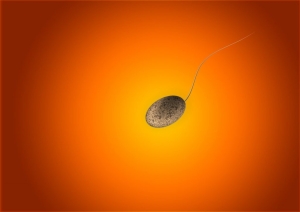
Font: Diari digital URV – 17/11/2020
An international study will analyze how lifestyle and environmental factors affect male infertility.
Male volunteers between the ages of 18 and 40 are needed to continue the research. The study is led by the Human Nutrition Unit and the Laboratory of Toxicology and Environmental Health of the URV University (TecnATox).
https://diaridigital.urv.cat/es/un-estudio-internacional-analizara-como-el-estilo-de-vida-y-los-factores-ambientales-afectan-a-la-infertilidad-masculina/
Font: Biotech – 18/11/2020
International study to analyze how lifestyle and environmental factors affect male infertility
Infertility affects approximately 15% of the world’s population and male factors are responsible for 40-50% of these cases. There are multiple causes that could explain the decrease in fertility in men: environment and lifestyle, environmental pollution, tobacco and/or alcohol consumption, lack of physical activity, stress and unhealthy diets seem to contribute greatly to the reduction of male fertility. However, no study has evaluated all these factors together at the same time. Now, a research group from the Human Nutrition Unit and the Laboratory of Toxicology and Environmental Health (TecnATox) of the URV are leading the LED-FERTYL study (Lifestyle and environmental determinants of seminograms and other male fertility related parameters), which is now in the recruitment phase of male volunteers between 18 and 40 years old.
The research will focus on studying sperm quality parameters such as concentration, motility and morphology in 600 volunteers. The recruitment of volunteers and the study of samples will be done in a coordinated manner and following the same protocol in Reus, Tarragona, Balearic Islands, United States and Poland. The results of this work were to explain how different lifestyle factors, including diet, sedentary lifestyle and exposure to various environmental pollutants – with endocrine disruption potential – can affect fertility.
http://biotech-spain.com/en/articles/un-estudio-internacional-analizar-c-mo-el-estilo-de-vida-y-los-factores-ambientales-afectan-a-la-infertilidad-masculina/

Font: Aguaita.cat- 17/11/2020
URV seeks volunteers to analyze the origin of male infertility
An international study will analyze the influence of lifestyle and environmental factors
Infertility affects approximately 15% of the world’s population and male factors are responsible for 40-50% of these cases. There are multiple causes that could explain the decrease in fertility in men: environment and lifestyle, environmental pollution, tobacco and/or alcohol consumption, lack of physical activity, stress and unhealthy diets seem to contribute greatly to the reduction of male fertility.
However, no study has evaluated all these factors together at the same time. Now, a research group of the Human Nutrition Unit and the Laboratory of Toxicology and Environmental Health (Tecnatox) of the URV lead the study LED-FERTYL (Lifestyle and environmental determinants of seminogram and other male fertility related parameters), which is now in the recruitment phase of male volunteers between 18 and 40 years old.
https://www.aguaita.cat/noticia/19871/urv-busca-voluntaris-analitzar-origen-infertilitat-masculina
Font: MónPlaneta – 17/11/2020
URV leads a study on lifestyle, environmental factors and male infertility
600 male volunteers between 18 and 40 years old are sought
An international study will analyze how lifestyle and environmental factors affect male infertility. The research is led by the Human Nutrition Unit and the Laboratory of Toxicology and Mental Health of the URV. Infertility affects approximately 15% of the world’s population and male factors are responsible for 40-50% of these cases.
The causes that can influence fertility decline are multiple – lifestyle, environmental pollution, tobacco and/or alcohol, lack of physical activity, stress and unhealthy diets. So far, however, no study has evaluated all these factors together at the same time, according to the URV. In order to continue the research, 600 men between 18 and 40 years old are needed.
The study, called LED-FERTYL -Lifestyle and environmental determinants of seminogram and other male fertility related parameters-, is currently in the volunteer recruitment phase. The research will focus on studying parameters of sperm quality, such as concentration, motility, or morphology, in 600 men. The recruitment of volunteers and the study of samples will be done in a coordinated manner and following the same protocol in Reus, Tarragona, Balearic Islands, United States and Poland.
According to information from the URV, the results of this study aim to explain how different lifestyle factors, including diet, sedentary lifestyle and exposure to various environmental pollutants – with the potential for endocrine disruption – can affect fertility.
https://monplaneta.cat/actualitat/urv-lidera-estudi-sobre-estil-vida-factors-ambientals-infertilitat-masculina-22676/
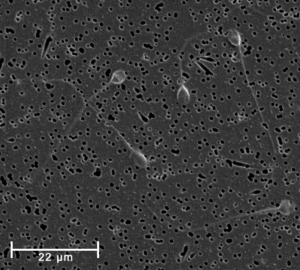
Font: La Vanguardia (Society) – 17/11/2020
The URV leads an international study on male infertility
The recruitment of volunteers and the study of samples will be done in a coordinated manner and following the same protocol in Reus, Tarragona, Balearic Islands, United States and Poland.
The objective is to learn how different lifestyle factors, including diet, sedentary lifestyle and exposure to various environmental pollutants, can affect fertility.
For researchers, understanding what the environment and lifestyle are and how these interactions might affect reproductive health is critical in order to establish effective prevention strategies.
https://diaridigital.urv.cat/es/un-estudio-internacional-analizara-como-el-estilo-de-vida-y-los-factores-ambientales-afectan-a-la-infertilidad-masculina/

